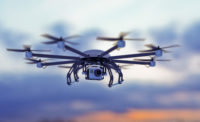With the 4th of July just around the corner, the National Institute for Alcohol Abuse and Alcoholism (NIAAA) wants you to have fun – but avoid risky drinking.
“Drinking impairs both physical and mental abilities, and it also decreases inhibitions—which can lead to tragic consequences on the water, on the road, and in the great outdoors,” says the NIAAA.
In fact, up to 70 percent of all water recreation deaths of teens and adults involve alcohol.
What you should be aware of, according to the NIAA:
Swimmers can get in over their heads
Alcohol impairs judgment and increases risk-taking, a dangerous combination for swimmers. Even experienced swimmers may venture out farther than they should and not be able to make it back to shore, or they may not notice how chilled they’re getting and develop hypothermia. Surfers could become over-confident and try to ride a wave beyond their abilities. Even around a pool, too much alcohol can have deadly consequences. Inebriated divers may collide with the diving board, or dive where the water is too shallow.
Boaters can lose their bearings
According to research funded by the NIAAA, alcohol may be involved in 60 percent of boating fatalities, including falling overboard. And a boat operator with a blood alcohol concentration (BAC) of more than 0.1 percent* is 16 times more likely to be killed in a boating accident than an operator with zero BAC.2 According to the U.S. Coast Guard and the National Association of State Boating Law Administrators, alcohol can impair a boater’s judgment, balance, vision, and reaction time. It can also increase fatigue and susceptibility to the effects of cold-water immersion. And if problems arise, intoxicated boaters are ill equipped to find solutions. For passengers, intoxication can lead to slips on deck, falls overboard, or accidents at the dock.
(*An adult male of average weight (196 lbs) would reach a BAC of 0.1 percent after drinking 4 or 5 drinks in an hour.)
Drivers can go off course
The summer holidays are some of the most dangerous times of the year to be on the road. When on vacation, drivers may be traveling an unfamiliar route or hauling a boat or camper, with the distraction of pets and children in the car. Adding alcohol to the mix puts the lives of the driver and everyone in the car, as well as other people on the road, at risk.
Dehydration is a risk
Whether you’re on the road or in the great outdoors, heat plus alcohol can equal trouble. Hot summer days cause fluid loss through perspiration, while alcohol causes fluid loss through increased urination. Together, they can quickly lead to dehydration or heat stroke.
How to stay safe and stay healthy
- Avoid alcoholic beverages while piloting a boat, driving a car, exploring the wilderness, and swimming or surfing.
If you're throwing a party:
- Offer a variety of nonalcoholic drinks.
- Provide a variety of healthy foods and snacks.
- Help your guests get home safely—use designated drivers and taxis.
- If you are a parent, understand the underage drinking laws—and set a good example.
Click here for more information on preventing problems with alcohol this summer, and tips on cutting back.


